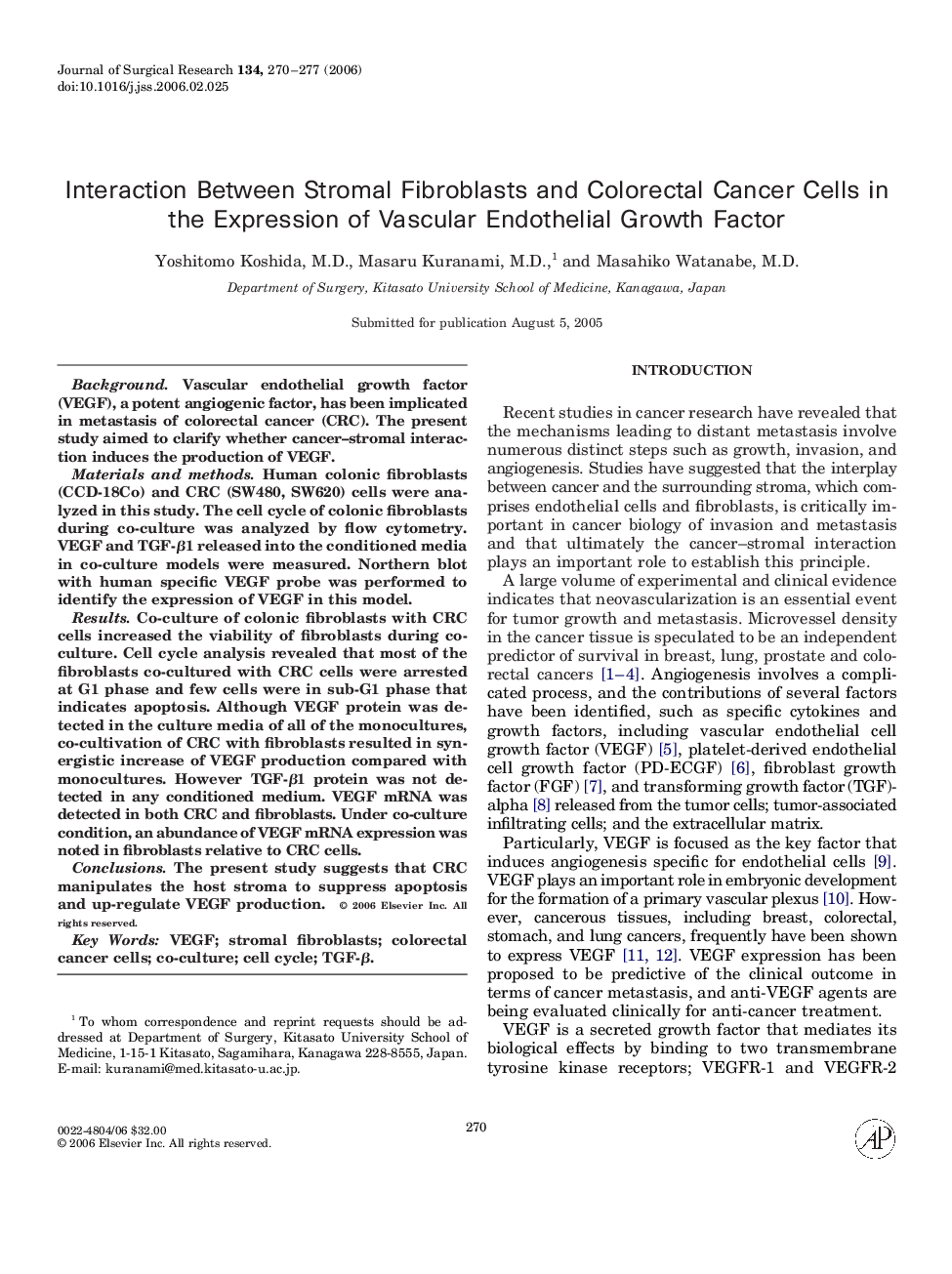| Article ID | Journal | Published Year | Pages | File Type |
|---|---|---|---|---|
| 4305026 | Journal of Surgical Research | 2006 | 8 Pages |
BackgroundVascular endothelial growth factor (VEGF), a potent angiogenic factor, has been implicated in metastasis of colorectal cancer (CRC). The present study aimed to clarify whether cancer–stromal interaction induces the production of VEGF.Materials and methodsHuman colonic fibroblasts (CCD-18Co) and CRC (SW480, SW620) cells were analyzed in this study. The cell cycle of colonic fibroblasts during co-culture was analyzed by flow cytometry. VEGF and TGF-β1 released into the conditioned media in co-culture models were measured. Northern blot with human specific VEGF probe was performed to identify the expression of VEGF in this model.ResultsCo-culture of colonic fibroblasts with CRC cells increased the viability of fibroblasts during co-culture. Cell cycle analysis revealed that most of the fibroblasts co-cultured with CRC cells were arrested at G1 phase and few cells were in sub-G1 phase that indicates apoptosis. Although VEGF protein was detected in the culture media of all of the monocultures, co-cultivation of CRC with fibroblasts resulted in synergistic increase of VEGF production compared with monocultures. However TGF-β1 protein was not detected in any conditioned medium. VEGF mRNA was detected in both CRC and fibroblasts. Under co-culture condition, an abundance of VEGF mRNA expression was noted in fibroblasts relative to CRC cells.ConclusionsThe present study suggests that CRC manipulates the host stroma to suppress apoptosis and up-regulate VEGF production.
